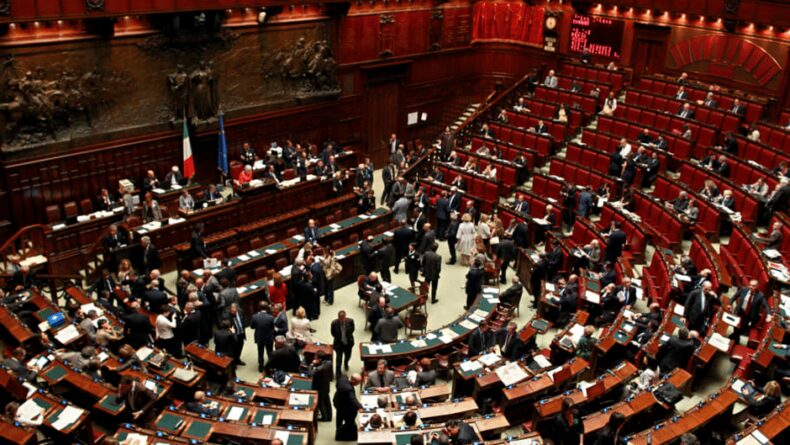In a nutshell
- Italian Prime Minister Giorgia Meloni’s party proposed a bill that aims to ban the use of English in official communication.
- Those who violate the rule could face hefty fines.
- The bill met with opposition, from certain quarters stating that it will hurt Italy’s global image and competitiveness.

Italian Prime Minister Giorgia Meloni’s party proposed a bill in the parliament that aims to ban the use of English and other foreign languages in official communication. The public and private entities that violate the rule could face fines of up to €100,000 (about Rs 90 lakh).
The bill introduced by Fabio Rampelli, a member of the right-wing party Brothers of Italy, seeks to counter the widespread phenomenon of ‘Anglomania’. According to the draft, foreign tongues, especially English “demean and mortify” the Italian language. The bill argues that the usage of English is worse now, which is ironic considering Britain’s exit from the European Union.
“We speak Italian in the lower chamber of deputies,” Rampelli wrote on Twitter. “We continue to fight for the use of our language rather than English.” “We don’t get why we call a “dispenser “the automated hand sanitizer dispenser”.
Meloni’s government would have officials prefer the Italian expression “dispensatore di liquido igienizzante per le mani” to dispenser.
What the bill entails
Under the new legislation, anyone who holds office in public administration is required to have “written and spoken knowledge and command of the Italian language.” It also prohibits the use of English in official records, such as “acronyms and names” for employment roles in local enterprises.

The foreign companies will be asked to have Italian versions of internal policies and employment contracts.
It also makes it mandatory to use Italian as the medium of instruction in schools and universities.
The first article of the legislation mandates that Italian must be the primary language used even in offices dealing with non-Italian-speaking foreigners.
‘Bru-sketta’ not ‘bru-shetta’
The new legislation assigns the Culture Ministry of Italy the responsibility of monitoring the correct use of language and pronunciation in educational institutions, the media, and commerce.
Thus, uttering “bru-shotta” instead of “bru-sketch”, an incorrect pronunciation of the traditional Italian appetizer, could incur hefty fines.
Criticism
The suggestion met with opposition, with certain quarters claiming that it would hurt Italy’s global image and competitiveness. Some opponents assert that a blanket ban on foreign terms might lead to linguistic isolation and limit the country’s capacity to communicate with the global community.
The proposed regulation comes only one day after Italy declared that it was temporarily suspending ChatGPT, an artificial intelligence chatbot, over data privacy concerns. With this measure, Italy becomes the first Western government to take action against the famous AI chatbot.
The suggestion met with opposition, with certain quarters claiming that it would hurt Italy’s global image and competitiveness. Some opponents assert that a blanket ban on foreign terms might lead to linguistic isolation and limit the country’s capacity to communicate with the global community.
The proposed regulation comes only one day after Italy declared that it was temporarily suspending ChatGPT, an artificial intelligence chatbot, over data privacy concerns. With this measure, Italy becomes the first Western government to take action against the famous AI chatbot.
To protect ‘cultural integrity
It is not the first time that Italy’s right-wing government has introduced legislation that claims to protect national heritage and cultural integrity.
Last Friday, they introduced a bill that prohibits laboratory-produced meat and other synthetic foods, citing that they don’t guarantee the safeguarding of Italian cuisine and culture. The legislation could impose fines of up to €60,000 (£53,000) upon failure to comply.
Read more:
https://tdznkwjt9mxt6p1p8657.cleaver.live/wp-admin/post.php?post=188971&action=edit














